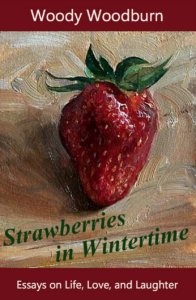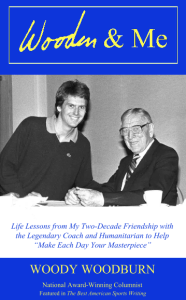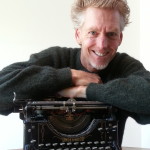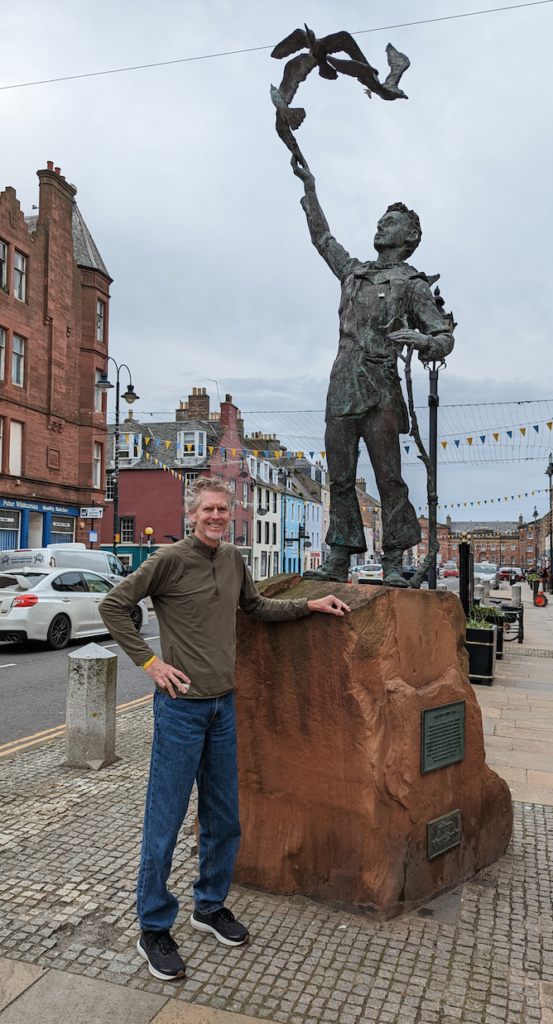“You gonna have a wee splash of whisky in that?”
There was no “e” in “whisky,” but perhaps four in weeee, for the question was posed in Scotland and thus a perfectly normal one even early in the morning.
Indeed, the sun was barely awake, My Better Half not much more so. She had walked to a café near our hotel in Edinburgh, in Old Towne to be specific, for her coffee fix while I was getting my caffeine-like jolt with a run. The query had come from a gentleman, weeee as a garden gnome and seemingly as old as a folktale, so Scottish his skin had a tweed texture and tartan liver spots. He was sitting on a stool at the counter and readily produced a silver hip flask with which he gestured warmly towards MBH. To the libations offer he added a wink that was purely playful, not full of flirtation, and MBH played along, quipping quickly: “Oh, not today, I don’t think…
“…but maybe tomorrow!”
The Scotsman, however, was personally having none not of this waiting until tomorrow business. As MBH shared in her laughing retelling to me: “The whisky on his breath almost made me tipsy.”
A trip, if you loosen the reins, will escort you to wonderful places you had not planned to go. And so it was that our four days in Scotland, followed by ten in Ireland, began with a side trip that was not on our mapped out Scottish itinerary that included Edinburgh Castle, the Highlands and Loch Ness, and historic St. Andrews Golf Course.
“Where’re you from?” the Scotsman with the flask asked in follow up.
“California,” replied MBH.
The Flaskman told her the most famous Californian he knew was John Muir and asked if she was going to go visit his birthplace and boyhood home in Dunbar, a quaint coastal town only half an hour away by train.
We had not planned to do so, an egregious oversight on my part for I always make a point of visiting famous authors’ homes when we travel. Indeed, we have been to Muir’s manor in Northern California, but I had not realized his birthplace was so close at hand. And so it was that on only our second day abroad, our trip took its first serendipitous detour.
Two fifteen-minute walks sandwiched around a relaxing train ride through beautiful countryside brought us to the center of town. Heading towards the North Sea on High Street we passed a towering bronze statue of Muir as a boy, one upraised arm pointing at three gulls in flight just beyond reach, and half a block later arrived at address 128.
The John Muir Birthplace Museum is much larger than I had anticipated, a boxy, three-story white building with eight front windows and a red-tile roof, a grand home in the early 1800s.
Within, we were greeted by a docent with eyes bluer than the clear sky on this day, a sunny smile as well, and an accent thicker than local Cullen skink chowder. The latter made it easy to imagine one was conversing with Muir himself. Upon learning from where we hailed, Mr. Muir-sound-alike noted, “This is the first bookend of his life story,” and proceeded to cheerfully regale us with some early tales.
That evening, raising a whisky – sans “e” and sans coffee – I toasted our travels ahead with a Muir quote I had seen on display: “The sun shines and the stars, and new beauty meets us at every step in all our wanderings.”
Our wanderings continue next week…
* * *
Woody’s debut novel “The Butterfly Tree: An Extraordinary Saga of Seven Generations” will be published in late March.
Essay copyrights Woody Woodburn
Woody writes a weekly column for The Ventura County Star and can be contacted at WoodyWriter@gmail.com. Follow him on Twitter and Instagram at @woodywoodburn. His SIGNED books are available at www.WoodyWoodburn.com.







